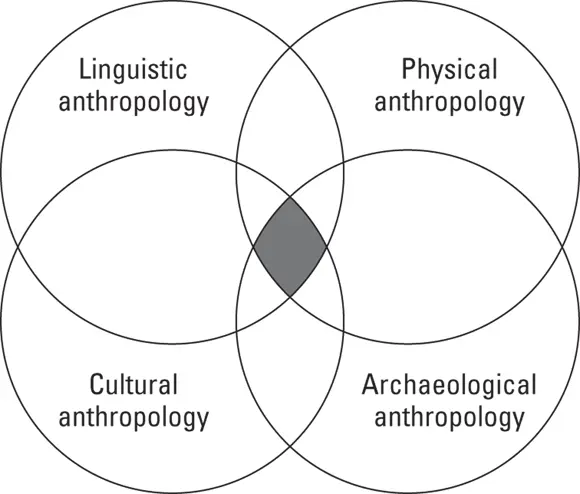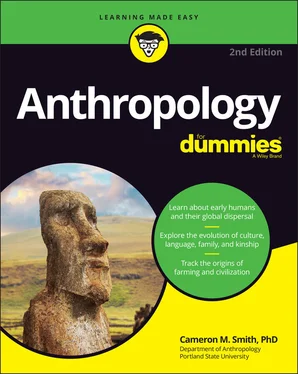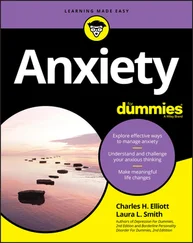1 ...8 9 10 12 13 14 ...25  Holism doesn’t necessarily imply that all parts of a society work in perfect harmony; all cultures appear to have some disunity or friction, and over time anthropologists understood this concept as well.
Holism doesn’t necessarily imply that all parts of a society work in perfect harmony; all cultures appear to have some disunity or friction, and over time anthropologists understood this concept as well.
By the 1960s, anthropologists weren’t content to simply study humanity — they wanted to apply what they’d learned about humanity to pressing real-world problems such as poverty. This approach, called applied anthropology, is an important facet of anthropology today, shaping some anthropologists’ research plans (and entire careers) as well as determining where the lessons the anthropologist has learned will be applied.
Today, anthropology is a multidisciplinary study, one that draws on evidence from many studies in many different academic disciplines. Throughout this book I describe the discoveries of generations of anthropologists worldwide. Keep in mind that such discoveries draw on all sorts of lines of evidence to flesh out the human story. You can read about these other kinds of evidence, and the subfields of anthropology, in Chapter 3.
Chapter 3
Actually, Four Mirrors: How Anthropology Is Studied
IN THIS CHAPTER
 Studying humanity as a biological species
Studying humanity as a biological species
 Unearthing humanity’s past
Unearthing humanity’s past
 Distinguishing humans from animals through language
Distinguishing humans from animals through language
 Investigating living societies
Investigating living societies
A nthropology, the study of humanity by humans, isn’t easy. Like any life form, the human species has many fascinating facets — from its biology to its language and deep history — and Western civilization has only been studying these facets in a truly systematic way for about 150 years. And much has changed even in those 150 years, both worldwide and within anthropology, such that anthropologists have to study the history of their own discipline to understand how much of what’s already been done is still important and what’s essentially out of date.
Still, anthropologists press on, believing that with care, diligence, sensitivity, a few research dollars, and plenty of graduate students willing to work for next to nothing, humanity can, indeed, learn important lessons about itself.
In this chapter, I describe the main ways that anthropologists examine humanity. Each of the subfields — physical anthropology, archaeology, linguistics, and cultural anthropology — are normally the career of a single anthropologist, but a full understanding of our species demands that you combine information from all these fields (see Figure 3-1). Therefore, anthropologists often proudly tell you that they’re “four-field anthropologists,” focusing on one facet of humanity but tying their findings in with all others. In the same way, I’m going to break anthropology out into its four subfields — but remember, discoveries in these individual fields have effects on the others.

Illustration courtesy of Cameron M. Smith, PhD
FIGURE 3-1:Anthropology as a four-field discipline.
Physical Anthropology and the Evolutionary Basis of Biology
One of Charles Darwin’s great contributions to civilization was to demonstrate that humanity was part of the world of living things, not separate from it. For thousands of years, Western civilization, backed up by the biblical story of creation, held humanity as a special creation fundamentally different from all other living things. By Darwin’s time, many were beginning to question this assessment, but the cultural pressure to conform to the dominant religion prevented most from saying so out loud. But Darwin’s ideas and the many it fertilized set the foundation for a new study: the study of humans as living, evolving creatures in many ways no different from the rest of animal life. Today, anthropologists have countless reams of data, much of it based on studies of DNA — the molecule that shapes all Earth life — that confirm the essence of Darwin’s claims, made back in 1859.
That evolutionary perspective allows the discipline of physical anthropology, the study of humanity as a biological phenomenon. What species are we most and least like? Where and when did we fist appear? What were our ancestors like? Can we learn about human behavior from the behavior of our nearest relatives, the chimpanzees and gorillas? Is our species still evolving? How do modern human genetics, population growth, and other current issues play out from a biological perspective? These are all issues that physical anthropologists investigate.
You say you want an evolution
The study of evolution is the study of the change through time of the properties of a living species. That’s because evolution is the foundation of the life sciences. Many kinds of life forms have become extinct (like the dinosaurs), but each of today’s living species (including humanity) has an evolutionary ancestry that reaches far back in time. Today, physical anthropologists can investigate our ancestors to tell us a lot about our evolutionary past.
 Evolution is often called a theory by people outside the scientific community, but in 2008 the scientific community at large advanced evolution to a fact status. Evolution is well demonstrated and supported by a wide variety of evidence gathered by scientists from around the world over the last 150 years. Evolution does happen.
Evolution is often called a theory by people outside the scientific community, but in 2008 the scientific community at large advanced evolution to a fact status. Evolution is well demonstrated and supported by a wide variety of evidence gathered by scientists from around the world over the last 150 years. Evolution does happen.
 Evolution, like anthropology, is studied by scientists. The scientific method both subjects share is a relatively simple process of generating knowledge based on three main stages of investigation. First, the scientist makes observations about the relationships among variables (such as air temperature and its effect on water). She then forms a hypothesis , or a statement about what effects she believes those variables will have on one another. (For example, she may hypothesize that exposure to cold air will cause water to freeze.) To test her hypothesis, she performs experiments to see whether her predictions are correct. If her hypothesis holds up under this extensive testing, she accepts the hypothesis as fact; if the experiments fail to produce the predicted results, she rejects the hypothesis. The key here is experimentation. What matters isn’t whether the scientist is a professor or an undergraduate but whether the data support the hypothesis. Every scientific claim is entirely open to questioning and scrutiny. Science recognizes no authorities; every statement is open to further investigation. In this way, science is the most democratic way of generating knowledge.
Evolution, like anthropology, is studied by scientists. The scientific method both subjects share is a relatively simple process of generating knowledge based on three main stages of investigation. First, the scientist makes observations about the relationships among variables (such as air temperature and its effect on water). She then forms a hypothesis , or a statement about what effects she believes those variables will have on one another. (For example, she may hypothesize that exposure to cold air will cause water to freeze.) To test her hypothesis, she performs experiments to see whether her predictions are correct. If her hypothesis holds up under this extensive testing, she accepts the hypothesis as fact; if the experiments fail to produce the predicted results, she rejects the hypothesis. The key here is experimentation. What matters isn’t whether the scientist is a professor or an undergraduate but whether the data support the hypothesis. Every scientific claim is entirely open to questioning and scrutiny. Science recognizes no authorities; every statement is open to further investigation. In this way, science is the most democratic way of generating knowledge.
Читать дальше

 Holism doesn’t necessarily imply that all parts of a society work in perfect harmony; all cultures appear to have some disunity or friction, and over time anthropologists understood this concept as well.
Holism doesn’t necessarily imply that all parts of a society work in perfect harmony; all cultures appear to have some disunity or friction, and over time anthropologists understood this concept as well. Studying humanity as a biological species
Studying humanity as a biological species
 Evolution, like anthropology, is studied by scientists. The scientific method both subjects share is a relatively simple process of generating knowledge based on three main stages of investigation. First, the scientist makes observations about the relationships among variables (such as air temperature and its effect on water). She then forms a hypothesis , or a statement about what effects she believes those variables will have on one another. (For example, she may hypothesize that exposure to cold air will cause water to freeze.) To test her hypothesis, she performs experiments to see whether her predictions are correct. If her hypothesis holds up under this extensive testing, she accepts the hypothesis as fact; if the experiments fail to produce the predicted results, she rejects the hypothesis. The key here is experimentation. What matters isn’t whether the scientist is a professor or an undergraduate but whether the data support the hypothesis. Every scientific claim is entirely open to questioning and scrutiny. Science recognizes no authorities; every statement is open to further investigation. In this way, science is the most democratic way of generating knowledge.
Evolution, like anthropology, is studied by scientists. The scientific method both subjects share is a relatively simple process of generating knowledge based on three main stages of investigation. First, the scientist makes observations about the relationships among variables (such as air temperature and its effect on water). She then forms a hypothesis , or a statement about what effects she believes those variables will have on one another. (For example, she may hypothesize that exposure to cold air will cause water to freeze.) To test her hypothesis, she performs experiments to see whether her predictions are correct. If her hypothesis holds up under this extensive testing, she accepts the hypothesis as fact; if the experiments fail to produce the predicted results, she rejects the hypothesis. The key here is experimentation. What matters isn’t whether the scientist is a professor or an undergraduate but whether the data support the hypothesis. Every scientific claim is entirely open to questioning and scrutiny. Science recognizes no authorities; every statement is open to further investigation. In this way, science is the most democratic way of generating knowledge.










